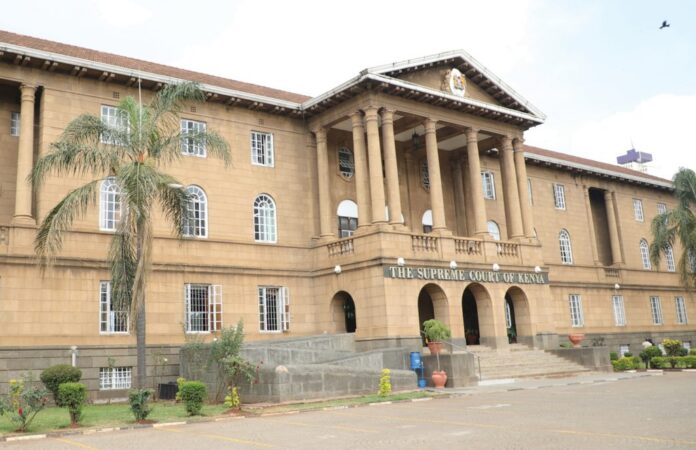Written by Joyce Nzomo
The Supreme Court has declared that the Chief Registrar of the Judiciary (CRJ) has no authority to discipline, interdict, or dismiss judges and magistrates.
The apex court said those powers rest solely with the Judicial Service Commission (JSC) and, by extension, the Chief Justice (CJ).
The decision arose from a case involving a Senior Principal Magistrate, identified as LMN, who was interdicted and later dismissed by the CRJ in 2016 over failure to deliver 204 judgments and rulings. LMN argued that her delays were due to health problems.
In its ruling, a five-judge bench comprising Chief Justice Martha Koome, and Justices Smokin Wanjala, Njoki Ndung’u, Isaack Lenaola, and Willis Ouko, ordered LMN’s reinstatement and payment of all her salaries and benefits dating back to August 22, 2016, the date she was interdicted.
“Even if it is assumed that the CRJ is third in command in the Judiciary, the JSC never gave her powers to charge and interdict the respondent,” Chief Justice Koome said.
The judges upheld earlier decisions by the High Court and the Court of Appeal, which had also ruled that the CRJ acted beyond her mandate (ultra vires) by initiating disciplinary action.
In the High Court, Justice Stephen Radido had found the CRJ’s actions unconstitutional.
Similarly, appellate judges Gatembu Kairu, Lesiit Wanjiku, and Grace Ngenye ruled that disciplinary powers over magistrates belong only to the Chief Justice.
The Supreme Court’s ruling means LMN will return to her position as Senior Principal Magistrate, with all her dues dating back nearly nine years.
















